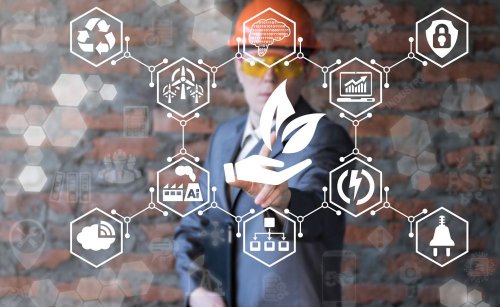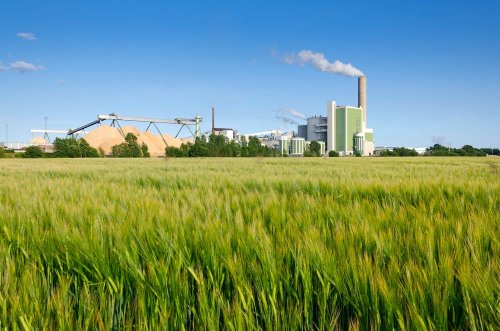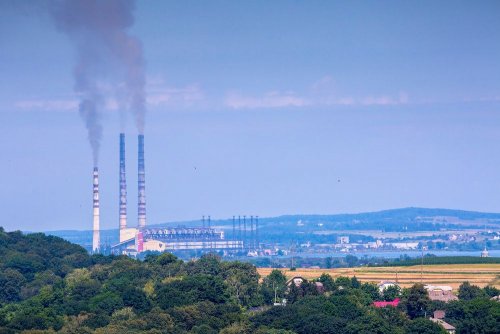EcoPolitic spoke with Lyudmyla Tsyhanok, President of the Association of Environmental Professionals (PAEW), about the risks of implementing the provisions laid down by lawmakers in the draft law No. 11355 "On Integrated Prevention and Control of Industrial Pollution" adopted by the Verkhovna Rada in the second reading.
How realistic is it that the law on industrial pollution voted on July 16 will actually work, rather than remain good intentions on paper?
Ukraine needs real reforms of the European or global level – the results of eco-modernization, not European integration myths. If we really see the implementation of Directive 2010/75/EU as an opportunity to modernize our production facilities and make Ukraine richer and people healthier, then we need real mechanisms. We need to go down to the ground and remove all the imperfections of this law, develop bylaws and financing instruments. No matter how enthusiastic the comments of the reformers who are responsible for this reform may sound in the information space, they do not want to admit that none of their reforms have taken place without responsibility for the consequences.
In order to avoid manipulation, I want to immediately emphasize that without modernization, Ukraine will be poor, and Ukrainians will be sick. Therefore, representing the Association of Environmental Professionals, I urge the public to hear about the risks I am emphasizing and try to avoid them. Because this is their direct task – to be responsible for the results of the reforms.
Among the reasons that already at this stage create risks for the implementation of the reform of the field of industrial pollution in Ukraine, I can name the following:
1. All reforms in the field of the environment, including this one, are created today by people who are not related to production . Therefore, unfortunately, they are unable to predict the long-term impact.
It would be good if all the reforms were discussed, there would be a real dialogue with the players of various spheres and industries. Otherwise, the adopted law will look like a beautiful wrapper for internationalists, and not for long, but the impact on the economy will be catastrophic. And the environment will not benefit from this in any way – we can see this from the results of the waste management reform.
2. Absence of production of equipment for modernization of production processes at existing enterprises in Ukraine.
Modernization involves, at the first stage, the development of a feasibility study, RP, all project documentation, which actually costs millions, but in fact it is just a piece of paper. Add to this the time required for its preparation.
In addition, Ukraine does not have its own production of equipment. We actually import everything, in most cases it is an individual order with the manufacturers of this equipment, and it is also drawings, funds and time. In order to move in sync with the entire civilized world, but to actually move, not to imitate, it is important to conduct primary analytics.
Is the state ready to support this reform?
Taking into account the realities of the implementation of the provisions of the Law of Ukraine No. 1555-VII "On State Aid to Business Entities", the stipulated obligation of the state to determine aid mechanisms for the implementation of BAT will not function. And no real help, except perhaps the system of preferential lending, will be provided.
If we look at the Ukrainian industry, we will see that the production base and technologies are mostly left over from the times of the USSR. According to estimates, the cost of implementing BAT even for medium-sized companies will reach hundreds of millions, or even billions of hryvnias. Therefore, according to experts of the Association of Environmental Professionals, the proposed obligation to implement BAT for Ukrainian industry within 7-12 years without external grant funding is economically and technically impossible and will have devastating consequences for the country's economy, especially taking into account the state of war and the consequences of war.
Commitments to customs relief – in fact, everyone today understands that these are just words. Let's recall the first blackout since October 2022. And when was the duty removed from generators? Since July 27 of this year, only changes have been made regarding the exemption from import duty of equipment for energy networks.
And if 2 years in a state of war were needed for equipment that is important for survival, and only now something is being done, then for modernization, these years will fly by extremely quickly.
Are there corruption risks in Law No. 11355?
First of all, granting concessions to enterprises will be subject to bargaining and will create additional corruption risks. That is why the initiators of the reform talk so much about these retreats, that is why various public activists loyal to the current government shout about these retreats. I believe that it is necessary to minimize all the risks of corruption schemes already at this stage, because otherwise there will be no reform.
Secondly, the statement about the positive consequences of the law for business by reducing the number of documents of a permissive nature and issuing a single integrated environmental permit, aka integrated permit, through a transparent, effective digital procedure is not at all true in view of the following:
- The law stipulates the need for operators of installations that carry out one or more types of activities that fall under the scope of regulation of this law, within 3 years after its entry into force, therefore, by August 2028, to prepare the necessary materials and submit applications to the Ministry of Environment for the issuance of a new permit, to receive it during August 2029, while the current permits for emissions of pollutants, for special water use, for waste treatment of many business entities were supposed to be valid after 2029, which will lead to the need for early obtaining of permit documents, i.e. this is another manifestation of regulation – permissions for the sake of permissions.
- The need to take into account in the integrated permit all related activities regulated at the installation will lead to the need to take into account all auxiliary small sources of emissions, waste generation, as a result, as well as their regulation under BAT, which again will unreasonably increase the burden on business after war
- The obligation to obtain an integrated permit within 4 years after the entry into force of the law, with the norm that the implementation of the BAT will take place no earlier than 4 years after the termination or cancellation of martial law, will lead to the need almost immediately, that is, 1-3 years after receiving integrated permit, go through the procedure for making changes to it.
Imagine this short period of time in terms of the fact that in the EU it took up to 30 years to implement BAT. Some countries have still not fully completed the process of modernization of production, and in Ukraine, currently, in the conditions of war, the industry is forced to constantly deal with obtaining permits. At the same time, officials say that these changes will have a positive impact on both industry and the environment.
If the task is to close all production in Ukraine, the environment will probably benefit from this. But is it about sustainable development? Very, very doubtful.
Therefore, if the goal is to destroy the entire economy, we are sure that this goal will be achieved. Does the environment in Ukraine benefit from such results? Quite likely. We remember how nature began to purify itself during the coronavirus pandemic – nature would be better off without humans. But is this the kind of development we want for our country? This question is rhetorical.
At a time when part of the citizens of Ukraine give the most precious thing for it – life, health in the struggle for independence, such actions of the legislators are not very similar to the implementation of the Directive, which took more than 30 years to implement in peacetime conditions, in the conditions of real financial mechanisms. We say that we will do it in 7 years. Then the question arises whether Ukraine, in the guise of such "reformers" and officials, is ready to bear responsibility for its promises.





